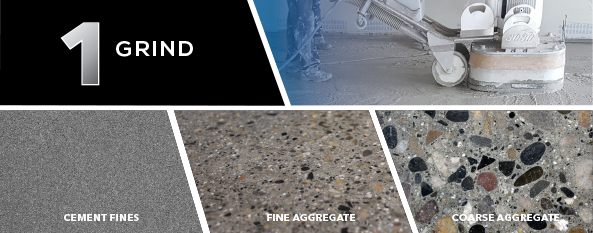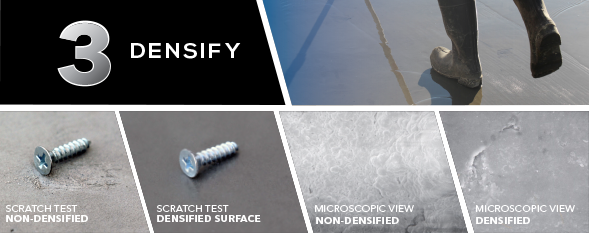Products
Application
.The RetroPlate Concrete Polishing System follows these basic steps performed by our certified applicators ensuring that every floor turns out just right.
.

.
The first step is to grind the floor with industrial strength diamonds. Grinding removes imperfections, marks and scratches, and exposes bare concrete by removing existing coating or mastic. Grinding can be light to heavy depending on the desired level of exposed aggregate. A new floor’s colored aggregate, recycled glass or other decorative material can be broadcast into the surface to be exposed during the grinding process.
.
.

.
Add style and personality to your polished concrete floors with an array of color options. Achieve any look and style with full color floors, custom logos or unique patterns. Color options for polished concrete include: integral color, dry shake and topical dyes and stains.
.
.

.
The next step is to densify the floor with RetroPlate. RetroPlate penetrates the concrete and chemically reacts to harden and densify the floor by filling-in pores and creating a dense surface. Densification is key to the long-term benefits of polished concrete. Many densifiers on the market claim to work for polished concrete, but there is only one RetroPlate.
.
.

The final step is to polish the floor with progressively finer diamond grits. This polishing procedure is what produces the floor’s sheen. A floor can be polished to a flat (ground), satin (honed), polished or highly polished finish. Adding color or seeded material allows for unlimited possibilities in design.

